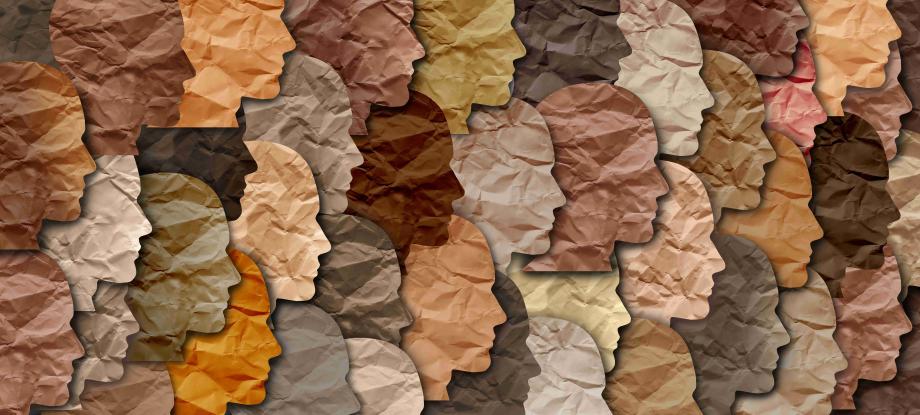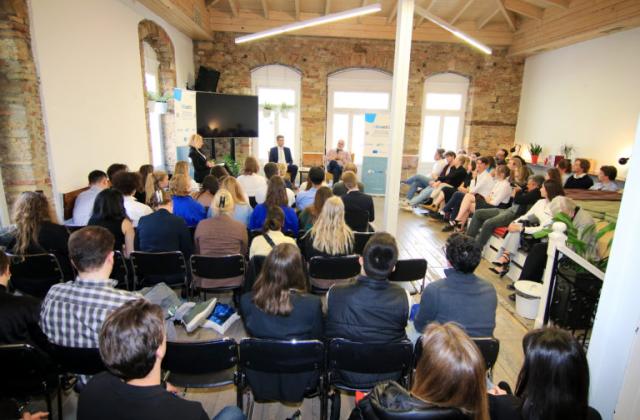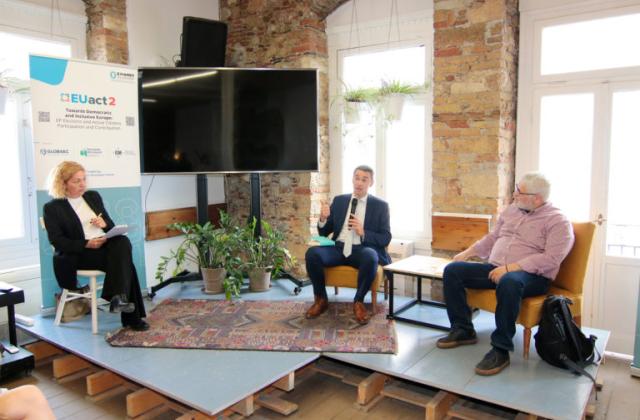"The EU in the World: The Role of European Cultural Diplomacy" – Event Summary

On April 19th 2023, ELIAMEP, as part of the EUact2 project, organised a small in situ debate titled "EU in the World: The Role of European Cultural Diplomacy". The primary objective of the event was to provide the participants with an in-depth understanding of Europe's position in the global arena, focusing particularly on the impact of its soft power through Cultural Diplomacy. Two speakers, Spyros Blavoukos, Head of the European Programme at ELIAMEP, and Stefanos Vallianatos, Head of the International Relations Department of the Hellenic Foundation for Culture, shared their insights in a discussion moderated by Odin Linardatou, Head of the Communication Department at ELIAMEP.
How can the EU utilise cultural diplomacy to its advantage? One speaker referred to the EU's motto of "Unity in Diversity," representing the idea that cultural and civic identities can coexist without competition and that the EU is founded on values rather than a distinct cultural identity. The Erasmus Programme successfully promotes European integration and brings about transformative pan-European experiences through relationships, and shapes a common understanding.
According to another speaker, cultural diplomacy aims to improve how others perceive you and is a crucial tool for nation branding. Despite the commonalities among EU states, a shared EU cultural policy has yet to be established due to fears of losing unique cultural and national identities. However, with the ambition for the EU to be a global (super)power, this tool should be sharpened and properly used.
Participants joined the debate by questioning why there is no European Cultural Diplomacy Strategy, why there is no institutional involvement by the EU in 'connecting the dots of the different cultural strategies among the member states' and 'building bridges' to fulfil the "Unity by Diversity" motto. Consequentially, the EU's cultural diplomacy would have true potential. Some recommendations from the young participants included: setting up minimum standards for courses in EU history and European culture, mandatory Erasmus semester, targeted funding and creative incentives (some already present through Creative Europe) and institutional focus on EU cultural diplomacy.
Sixty-three participants attended the event from eleven countries: nine EU member-states, the USA and Turkey. Women represented 57%, and men 43% of the audience. The participants were predominantly young people with 62% in the 18-22 age group. The event lasted two hours and was divided into two parts: a presentation by two experts and an open discussion with the audience and experts.


